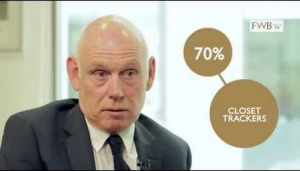
The Financial Post has just run my blog on an appeal to the Liberal administration by Catherine Swift of Working Canadians to keep annual contribution limits for Tax-Free Savings Accounts (TFSAs) at the $10,000 level they reached this summer.
As you’ll see by clicking through on the FP link below, the argument is based on the retirement-readiness disparity of the public and private sectors, a situation David Chilton alluded to in the Hub’s Monday report on his weekend speech to financial bloggers: Chilton to bloggers — Public-sector retirements in far better shape than private sector’s.
Click here for full FP blog: Cutting TFSA limit unfair when our tax dollars pay for gold-plated public pensions, citizens group charges.
The full press release can be found here.
In a telephone interview conducted after the above blog was posted, Swift — who works closely with Pension Ponzi author Bill Tufts — said the situation is “terrible” with billions of dollars of taxpayer money expended every year to prop up gold-plated public-sector pension plans. By the way, I highly recommend the book highlighted above in red: it clearly lays out the disparity that Swift, Chilton and I are complaining about.
Data doesn’t show TFSAs are a tool only for the rich






